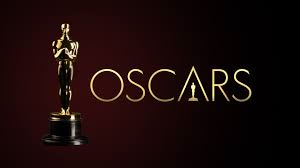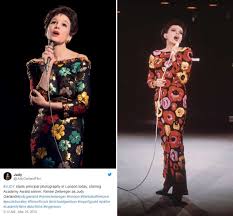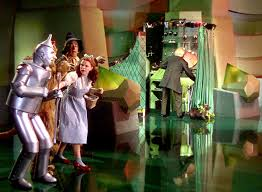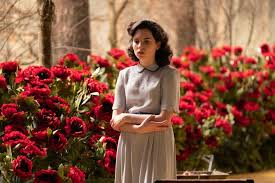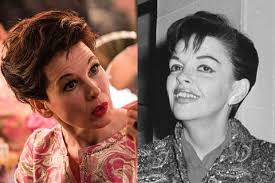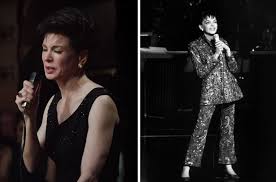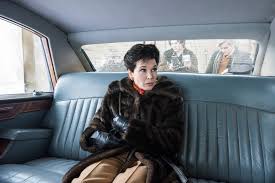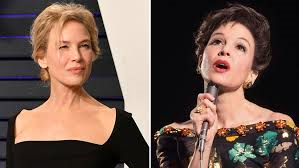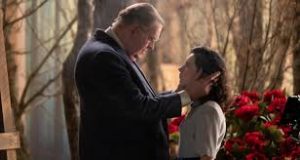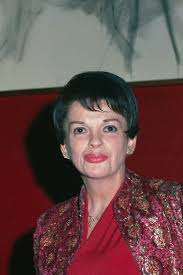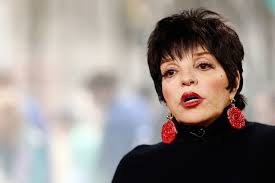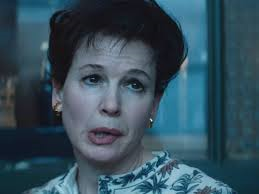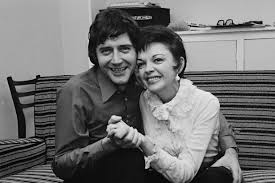AUDIO PODCAST OPTION OF: MY OSCAR PICKS FOR 2020
PART ONE
PART TWO
Well it’s that time again – tucked right between Groundhog Day and Valentine’s Day – to hand out the Oscars! Some think of it as a time to recognize outstanding achievement in the art of cinema. Louis B. Meyer referred to it as a trade show. George C. Scott called it a meat market and refused to participate. But, however you think of it, the winning of this award confers a great deal of attention and is a heck of a resume enhancer for those on both sides of the camera.
Let’s start by identifying the categories. You can get your own ballot HERE.
Originally called the Academy Award of Merit, it was the brain child of Louis B. Meyer who thought up the idea in 1929, allegedly to forestall unionization, asserting: “I found that the best way to handle [filmmakers] was to hang medals all over them.”
Sculpted by George Stanley, a native of Iota, Louisiana (significant to me, personally, as that is my home state), Stanley followed the design by Cedric Gibbons, the Art Director for such classics as The Wizard of Oz, Gaslight, and Brigadoon.
The far more famous moniker for the Academy Award of Merit is, of course, Oscar – supposedly dubbed by a passing secretary who was alleged to have quipped: “That looks like my Uncle Oscar!”
The most anticipated awards are for best: Picture, Lead Actor and Actress, Supporting Actor and Actress, Director, Screenplay and Song. But there are, all told, 24 standard categories plus the periodic endowment of a Life Time Achievement award and a variety of lesser known technical and merit based awards.
I’m only going to cover the areas on which I feel comfortable expositing – acting, directing, cinematography (with some assistance from my excellent photographer husband), writing, and music.
Below I offer some rules of thumb.
ACTING
Do you get to know the character? I think a good rule of thumb in evaluating acting is to ask yourself after having seen the performance – do you know this character? Has the performer put so much nuance and exposition into his filmatic creation that you could take a good guess as to how they might react in any given situation? Now limitations here are not always the actor’s fault. There just might not be enough pallet in an individual film to paint enough of a spectrum to allow this kind of extrapolation. But some actors can, with just a glance, body language, change of inflection or what they DON’T do or say, get into the skin of their character.
This becomes evident when noting there have been awards handed out for the smallest of screen time characters: such as Beatrice Straight’s 5 minutes and 2 second supporting actress performance in Network, or for Ingrid Bergman’s 5 minute continuous shot in Murder on the Orient Express.
MUSIC AND CINEMATOGRAPHY
Does it serve the film? Though, obviously, two different categories, music and cinematography have the same job – do they both “act” as performers in their own right AND blend in, in such a way that unless you are listening or watching for it, you don’t notice? Examples are the way Stanley Kubrick recreated the first significantly realistic cinematic experience of being in space in 2001: A Space Odyssey – astonishingly accurate for its time, especially given the limited technology with which to innovate. Watching it now the visuals seem natural – of COURSE this is what it would be like – the weightlessness of the floating pen, following Dave Bowman as he runs in the circular habitat. But if you step back and realize Kubrick did it without actually going into space with 60 year old technology you realize what a stand out performance the cinematography really is. Or how the music in Casablanca fits, enhances and captures the mood and time of the era and place of Vichy France during World War II, as well as reflects the personalities of the outstanding cast. The music buoys up the performances of Bergman and Bogey seamlessly, yet later you realize how enchantingly memorable the themes are.
WRITING
Was it done with a conscience? Is the story created within a coherent Universe which, depending upon the rules IN that Universe are: reasonably without holes, with believable characters, structured by a convincing plot and with a worthy theme that made the time you spent watching a good investment?
DIRECTING and BEST PICTURE
Is it timeless? Does the movie come back to you again and again, revealing layers you never saw the first or second or tenth time you saw it? Like: It’s a Wonderful Life, Groundhog Day, or Branagh’s Hamlet.
So armed with these admittedly somewhat shallow explanations for what is, fundamentally, an intellectually driven visceral response to the films at hand, I give you:
MY PICKS FOR THE OSCARS 2020
Of the ones I pick, I’ll do them in the order the Academy more or less USUALLY presents them. In full disclosure, I have only seen ALMOST all of the movies in play. I promise not to declare a vote for anyone/thing I haven’t seen. I also plan to see all the ones in the categories for which I’m voting – and if that causes a later change in vote I’ll do an update.
BEST SUPPORTING ACTOR
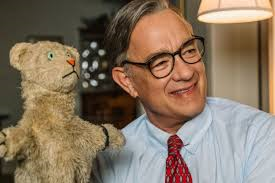 Tom Hanks in A Beautiful Day in the Neighborhood – Hands down the most incredible performance of 2019 (See my review HERE) Hanks WAS Mr. Rogers. Every subtle vocal and physical mannerism, the kindness, the deeply spiritual charisma of Evangelical belief that was Fred Rogers, is all on gentle display with Hanks. In this movie I got to know Rogers as though he HAD been my neighbor.
Tom Hanks in A Beautiful Day in the Neighborhood – Hands down the most incredible performance of 2019 (See my review HERE) Hanks WAS Mr. Rogers. Every subtle vocal and physical mannerism, the kindness, the deeply spiritual charisma of Evangelical belief that was Fred Rogers, is all on gentle display with Hanks. In this movie I got to know Rogers as though he HAD been my neighbor.
BEST SUPPORTING ACTRESS
There are some terrific performances up for nomination this year. But my nod would have to go to 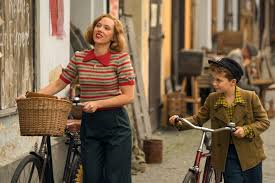 Scarlett Johansson as Rose in Jojo Rabbit. Her presentation of a single mother leading a double life in the heart of Nazi Germany gives us a view of this woman in every possible light. She is shouldering the impossible task of protecting her son and trying to maintain the facade of a normal life while her country is under the thumb of psychopaths and soulless serial killers, all while harboring a heroic secret which could get them all brutally killed. We see the struggle in her eyes while admiring the courageously thrown up jaunty attitude with which she faces the world. Johansson reveals the beautiful soul of this woman all while operating within the confines of a supporting role.
Scarlett Johansson as Rose in Jojo Rabbit. Her presentation of a single mother leading a double life in the heart of Nazi Germany gives us a view of this woman in every possible light. She is shouldering the impossible task of protecting her son and trying to maintain the facade of a normal life while her country is under the thumb of psychopaths and soulless serial killers, all while harboring a heroic secret which could get them all brutally killed. We see the struggle in her eyes while admiring the courageously thrown up jaunty attitude with which she faces the world. Johansson reveals the beautiful soul of this woman all while operating within the confines of a supporting role.
BEST ANIMATED FEATURE
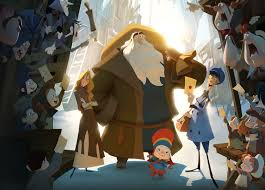

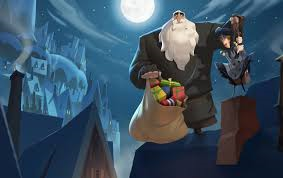 Klaus (See my review HERE) Clever story, engaging and personable characters, delightful animation, unique take on an old traditional tale, excellent vocal performances, and a richly worthwhile theme make this my absolute favorite for this category.
Klaus (See my review HERE) Clever story, engaging and personable characters, delightful animation, unique take on an old traditional tale, excellent vocal performances, and a richly worthwhile theme make this my absolute favorite for this category.
BEST ADAPTED SCREENPLAY
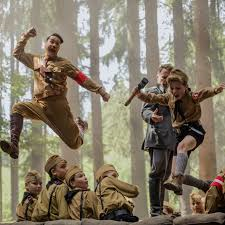 Jojo Rabbit is one of the oddest films I have ever seen. Without diverting into “Springtime For Hitler” territory, it shows Nazi Germany near the end of the war through the eyes of a pre-adolescent boy forced into the Hitler Youth. We see through his naive eyes as he concocts an initially Tigger-like jovial bouncy Hitler (performed with bizarrely adorable exuberance by the writer/director Taika Waititi, whose unusual sense of humor reinvigorated the Thor franchise with much needed humor). We understand the child-innocent well meaning enthusiasm toward the Hitler Youth in general and Nazi Germany in general, the way children today might go to summer camp. He simply did not understand what was really going on. There is an unexpected lightness to Waititi’s script, based on Christine Leunen’s book Caging Skies, which darkens with the characters the more Jojo matures and comprehends. Jojo Rabbit is a profoundly moving piece of work which is both hard to watch and endearing to embrace as it demonstrates how the smallest of lights can illuminate so much even in the darkest of places. Waititi creates a world wherein decent credible people are trapped in the insanity of the Nazi death culture, who fight it with the strength of their courage and the beauty of genuine other-centered love.
Jojo Rabbit is one of the oddest films I have ever seen. Without diverting into “Springtime For Hitler” territory, it shows Nazi Germany near the end of the war through the eyes of a pre-adolescent boy forced into the Hitler Youth. We see through his naive eyes as he concocts an initially Tigger-like jovial bouncy Hitler (performed with bizarrely adorable exuberance by the writer/director Taika Waititi, whose unusual sense of humor reinvigorated the Thor franchise with much needed humor). We understand the child-innocent well meaning enthusiasm toward the Hitler Youth in general and Nazi Germany in general, the way children today might go to summer camp. He simply did not understand what was really going on. There is an unexpected lightness to Waititi’s script, based on Christine Leunen’s book Caging Skies, which darkens with the characters the more Jojo matures and comprehends. Jojo Rabbit is a profoundly moving piece of work which is both hard to watch and endearing to embrace as it demonstrates how the smallest of lights can illuminate so much even in the darkest of places. Waititi creates a world wherein decent credible people are trapped in the insanity of the Nazi death culture, who fight it with the strength of their courage and the beauty of genuine other-centered love.
BEST ORIGINAL SCREENPLAY
I struggled a bit with this one because all of the entries are outstanding. Knives Out (SEE REVIEW HERE) is a funny and clever anti-mystery. 1917 captures the World War I era with a terrifying beauty. Once Upon a Time in Hollywood is a refreshingly unique take on such a horrific moment in history. OK Parasite is terrible. Had no trouble bumping that one.
 But Marriage Story is the stand out winner – a brilliant, insightful, gut wrenching take of a marriage as it is torn apart piece by piece from the inside out in a way only Hannibal Lector could approve. Two perfectly nice, compatible people decide they have different goals and instead of DECIDING, against any other consideration, to work it out for the sake of their vows, their child, and their own sanity – they consult …. divorce attorneys. This is, of course, a bit like trying to wash a bloody wound in a river full of piranhas and expecting to get something back other than a stump. Written by Noah Baumbach, the gifted director/writer with unfortunate first hand experience of the subject, it is the most tragic love story I have ever seen. It is also one of the single most convincing expositions against seeking a divorce for anything other than abuse or something life threatening.
But Marriage Story is the stand out winner – a brilliant, insightful, gut wrenching take of a marriage as it is torn apart piece by piece from the inside out in a way only Hannibal Lector could approve. Two perfectly nice, compatible people decide they have different goals and instead of DECIDING, against any other consideration, to work it out for the sake of their vows, their child, and their own sanity – they consult …. divorce attorneys. This is, of course, a bit like trying to wash a bloody wound in a river full of piranhas and expecting to get something back other than a stump. Written by Noah Baumbach, the gifted director/writer with unfortunate first hand experience of the subject, it is the most tragic love story I have ever seen. It is also one of the single most convincing expositions against seeking a divorce for anything other than abuse or something life threatening.
And yet the tale as written is also warm, funny and paints even the attorneys in ways which allow the audience to empathize with every character to a certain degree. Marriage Story is gifted writing with a conscience, at its best.
CINEMATOGRAPHY
 1917. Honestly all the other contenders, as good as they are, should graciously bow out. There is no competing with this astonishing visual accomplishment, whereby we seamlessly follow soldiers for two edge-of-your-seat hours, during a desperately perilous mission, in what appears to be one uncut shot, through the Hellscape that was the front line in France during World War I.
1917. Honestly all the other contenders, as good as they are, should graciously bow out. There is no competing with this astonishing visual accomplishment, whereby we seamlessly follow soldiers for two edge-of-your-seat hours, during a desperately perilous mission, in what appears to be one uncut shot, through the Hellscape that was the front line in France during World War I.
BEST ORIGINAL SCORE
 Joker. (SEE REVIEW HERE). While I truly enjoyed all of the music from all of the movies (even from Little Women, which story I thought awful {SEE REVIEW HERE}), all but one painted “simple” enhancing atmosphere. All but one film had soundtracks which were: original, inventive, witty, romantic, tense, frightening and/or just lovely musical tapestries. But only one – only Joker – created an entirely different character just with sound. The Icelandic composer, Hildur Guðnadóttir wove, from the ephemeral air, music that did not just set a mood but companioned Arthur Fleck, giving tangible auditory representation to his descent into utter madness. While Phoenix’ performance was riveting, the presence of his accompanying soundtrack achieved a visceral connection with the audience which he could not have created from mere visuals, no matter how brilliantly wrought.
Joker. (SEE REVIEW HERE). While I truly enjoyed all of the music from all of the movies (even from Little Women, which story I thought awful {SEE REVIEW HERE}), all but one painted “simple” enhancing atmosphere. All but one film had soundtracks which were: original, inventive, witty, romantic, tense, frightening and/or just lovely musical tapestries. But only one – only Joker – created an entirely different character just with sound. The Icelandic composer, Hildur Guðnadóttir wove, from the ephemeral air, music that did not just set a mood but companioned Arthur Fleck, giving tangible auditory representation to his descent into utter madness. While Phoenix’ performance was riveting, the presence of his accompanying soundtrack achieved a visceral connection with the audience which he could not have created from mere visuals, no matter how brilliantly wrought.
BEST ORIGINAL SONG
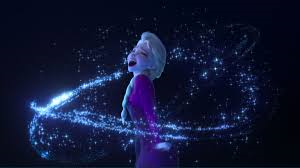 I am not a big fan of the Frozen movies but I really think Kristen-Andersen Lopez and Robert Lopez’ “Into the Unknown” deserves special commendation. The haunting melody is far more complex than you might expect, especially for an animated feature. “Into the Unknown” is a gigue in 12/8 time (a very fast waltz time likely undanceable) in C#. While, unless you have absolute pitch or a music degree, the relevance of that won’t be obvious, suffice it to say it is a complex key signature using a TON of sharps. Choices like these are made by composers for almost subliminal reasons – to give a specific flavor and feel to music using a particular keyboard range, for example. There is also a psychological aspect to using all those sharps. As a “sharp” is a half step UP from a “normal” note, it LOOKS, on sheet music like it rises, so lends itself to a feel of spritely upbeatness. Since anything written in the key of C# would be bathed in a “sea” of sharps (“see” what I did there – sorry couldn’t help myself), this visual helps facilitate the intense forward moving personality of the song.
I am not a big fan of the Frozen movies but I really think Kristen-Andersen Lopez and Robert Lopez’ “Into the Unknown” deserves special commendation. The haunting melody is far more complex than you might expect, especially for an animated feature. “Into the Unknown” is a gigue in 12/8 time (a very fast waltz time likely undanceable) in C#. While, unless you have absolute pitch or a music degree, the relevance of that won’t be obvious, suffice it to say it is a complex key signature using a TON of sharps. Choices like these are made by composers for almost subliminal reasons – to give a specific flavor and feel to music using a particular keyboard range, for example. There is also a psychological aspect to using all those sharps. As a “sharp” is a half step UP from a “normal” note, it LOOKS, on sheet music like it rises, so lends itself to a feel of spritely upbeatness. Since anything written in the key of C# would be bathed in a “sea” of sharps (“see” what I did there – sorry couldn’t help myself), this visual helps facilitate the intense forward moving personality of the song.
This fascinating piece is sung with an irresistible rhythm and mystery which not only gives an arc to Elsa’s character, admitting her previous failures, but is written in a way that, performed independently of the movie, could be interpreted in a variety of ways. It could be someone holding back from an enticement to temptation or conversely, being compelled to accept a challenge. It could be someone trying to talk themselves either into or out of something and that is part of the song’s charm and fun. It has the malleability to be many things to many people and is enticing for that. In addition Idina Menzel’s performance is incredible. Ranging from hesitant ghostly whisper to wall rattling boldness, her portrayal is almost operatic in its execution. Not to mention it’s darned catchy.
BEST DIRECTOR
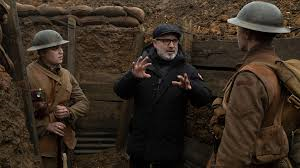 Has to be Sam Mendes for the sheer determination and vision he brought to bear in pulling 1917 into life. Aside from the experimental Russian Ark (which really WAS shot in ONE – one hour and 39 minute take – SEE REVIEW HERE) and Hitchcock’s faux “one shot” Rope, no other film has quite captured the intensity of the one take film as Mendes has, OR accomplished it with such appropriate purpose. Russian Ark was almost a stunt. Hitchcock used the technique as just another arrow in his quiver of quirky ways to create suspense. But Mendes’ worthy intent was to provide the viewer with a sense of camaraderie with these soldiers – not just to sympathize with them but to EMPATHIZE – To honor the memory of these brave servicemen by recreating the experience, walking with these men, almost as though in accompanying boots. 1917 bears the intensity and immersion of the 27 minute long landing scene in Saving Private Ryan, then carries it for another NINETY-TWO additional minutes, maintaining the appearance of a single shot, all while sustaining an entertainment value that will keep you glued to the screen for two incredible hours.
Has to be Sam Mendes for the sheer determination and vision he brought to bear in pulling 1917 into life. Aside from the experimental Russian Ark (which really WAS shot in ONE – one hour and 39 minute take – SEE REVIEW HERE) and Hitchcock’s faux “one shot” Rope, no other film has quite captured the intensity of the one take film as Mendes has, OR accomplished it with such appropriate purpose. Russian Ark was almost a stunt. Hitchcock used the technique as just another arrow in his quiver of quirky ways to create suspense. But Mendes’ worthy intent was to provide the viewer with a sense of camaraderie with these soldiers – not just to sympathize with them but to EMPATHIZE – To honor the memory of these brave servicemen by recreating the experience, walking with these men, almost as though in accompanying boots. 1917 bears the intensity and immersion of the 27 minute long landing scene in Saving Private Ryan, then carries it for another NINETY-TWO additional minutes, maintaining the appearance of a single shot, all while sustaining an entertainment value that will keep you glued to the screen for two incredible hours.
BEST LEADING ACTOR
This is a toughie. All the men in this category did a superb job. Banderas was as detailed and delicately understated in Pain and Glory as Joaquin Phoenix was wildly exubertant in Joker. Di Caprio was surprisingly delightful and funny as the washed up actor in Once Upon a Time in Hollywood. Adam Driver, especially to anyone mostly familiar with him as Star Wars’ Kylo Ren baddie, was heartbreakingly empathetical as the shut out husband and father in Marriage Story.
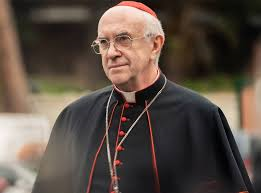 But my vote has to be with the incomparable Jonathan Pryce. Pryce let us in to the mind, heart and soul of Pope Francis, revealing in just a gesture or a double take, a hesitation in his voice or a quick Mona Lisa grin, the deep history of a man who had seen too much with a full heart and an aching to bring the love of Christ to a broken world. Watching Pryce we begin to understand the flawed, sometimes troubled, Cardinal Bergoglio who, by his own admission in this story, made grave, albeit well meaning, mistakes during his time as bishop in Argentina. We, the audience, can actually feel his humility and regret, as well as the hint of over confidence in his own opinions. We also get a glimpse into what compels the Pope who now occupies the Seat of Peter in a personal way rarely seen by outsiders, thanks to Mr. Pryce’s beautiful and respectful yet honest portrayal.
But my vote has to be with the incomparable Jonathan Pryce. Pryce let us in to the mind, heart and soul of Pope Francis, revealing in just a gesture or a double take, a hesitation in his voice or a quick Mona Lisa grin, the deep history of a man who had seen too much with a full heart and an aching to bring the love of Christ to a broken world. Watching Pryce we begin to understand the flawed, sometimes troubled, Cardinal Bergoglio who, by his own admission in this story, made grave, albeit well meaning, mistakes during his time as bishop in Argentina. We, the audience, can actually feel his humility and regret, as well as the hint of over confidence in his own opinions. We also get a glimpse into what compels the Pope who now occupies the Seat of Peter in a personal way rarely seen by outsiders, thanks to Mr. Pryce’s beautiful and respectful yet honest portrayal.
AS A SIDE NOTE – A WRITE-IN
BUT – according to my own parameters I would like to submit a write-in for at least a nomination. Given my rule of getting to know a character through the performance of an actor, I can think of no other cinematic creation we, as the viewing public have gotten to know better than this, my write-in. There has never been, and may never be again in cinematic history, a character quite this well fleshed out by a single actor over the length of time and movies involved here.
We watched the profound arc of an extreme narcissist who, through multiple traumas, sheer determination, strength of character, and support from friends and family, becomes the hero he incorrectly believes himself to initially be. Over the course of many trials and agonizing losses he finds: altruism, responsibility, an ability to genuinely love, and ultimately a willingness to sacrifice everything he has – wealth, brilliance, family, happiness, comfort, security, and ultimately his own life – to secure all those things for, not only his loved ones, but for humanity and generations he will never meet.
This character develops from puerile man-child to a worthy leader of heroes and yet never loses that certain spark of flawed playful arrogance which makes him easily relatable. It’s an incredible balancing act which this actor maintained throughout 11 years over the course of appearances in 10 out of 22 movies.
 I am, of course, referring to Robert Downey, Jr.’s Iron Man aka Tony Stark, in the Infinity Saga, which both began and ended with Tony’s declaration: “I am Iron Man.”
I am, of course, referring to Robert Downey, Jr.’s Iron Man aka Tony Stark, in the Infinity Saga, which both began and ended with Tony’s declaration: “I am Iron Man.”
Downey’s Stark’s legacy continues through flashbacks and archival footage in both Spiderman: Far From Home and the upcoming Black Widow. We knew this character inside out under every circumstance possible. For better or worse, like him or not, he became a very well known, unmistakable personality.
While the culmination of Stark’s arc was in 2019’s Avengers: Endgame, admittedly the entire journey did not all take place during the course of this one movie. BUT if fictional characters could get life time achievement awards, this would be the one to give it to. Furthermore, Mr. Downey shouldered the majority of this somewhat Herculean task. Not only did he maintain a constant personality for Tony but allowed it to grow and struggle and expand, yet never lost the essential core that made Stark a magnetic fan favorite.
Others have tried this stunt and failed: Schwartzenegger’s Terminator, Depp’s Captain Sparrow. But those died of stagnation, audience fatigue, and lost of enthusiasm. In contrast, Downey managed to make Tony Stark thrive and mature and flourish with each appearance. It was an astonishing feat of creativity and it is a shame that it was not and likely never will be officially acknowledge by his peers. But the fans will remember and I suspect that is more than enough —- that and the gazillion dollars Downy earned playing Stark. As my Dad used to say: “I’m sure he’s crying all the way to the bank.” LOL
BEST LEADING ACTRESS
 I admired all the performances I saw in this category. But the most outstanding one was Renee Zellweger’s Judy. Her complete transformation into Judy Garland, in the iconic star’s last, waning, rather pathetic months, both showed the open raw wound she had become, as well as retained a glimmer of the child star with whom we all fell in love while watching Wizard of Oz. In addition, Zellweger’s renditions of the famous songs by Ms. Garland were incredible. She reminded me both of Gary Oldman’s astonishing turn as Churchill in Darkest Hour {SEE REVIEW HERE}and Malek’s heartbreaking Freddie Mercury in Bohemian Rhapsody {SEE REVIEW HERE}. This masterful accomplishment was all the more amazing given the poor quality of the film, Judy, in general {SEE MY REVIEW HERE}. But Zellweger’s performance was the stand out gem in the otherwise tattered coat that was Judy.
I admired all the performances I saw in this category. But the most outstanding one was Renee Zellweger’s Judy. Her complete transformation into Judy Garland, in the iconic star’s last, waning, rather pathetic months, both showed the open raw wound she had become, as well as retained a glimmer of the child star with whom we all fell in love while watching Wizard of Oz. In addition, Zellweger’s renditions of the famous songs by Ms. Garland were incredible. She reminded me both of Gary Oldman’s astonishing turn as Churchill in Darkest Hour {SEE REVIEW HERE}and Malek’s heartbreaking Freddie Mercury in Bohemian Rhapsody {SEE REVIEW HERE}. This masterful accomplishment was all the more amazing given the poor quality of the film, Judy, in general {SEE MY REVIEW HERE}. But Zellweger’s performance was the stand out gem in the otherwise tattered coat that was Judy.
BEST PICTURE
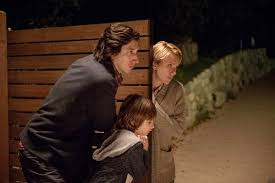 Marriage Story – for all the reasons I chose it for Best Original Screenplay. This is a movie which will stick with you, help inform your decisions if you let it, and be worth sharing with those who desperately need it. It will charm you, break your heart and make you a wiser person for having seen it – IF you take the lessons it has to offer to heart.
Marriage Story – for all the reasons I chose it for Best Original Screenplay. This is a movie which will stick with you, help inform your decisions if you let it, and be worth sharing with those who desperately need it. It will charm you, break your heart and make you a wiser person for having seen it – IF you take the lessons it has to offer to heart.
SO THAT’S IT FOR NOW!!!!
Good luck to one and all! And may the best actor, actress, director, movie, screenplay, cinematographer, song, and music —- WIN!
